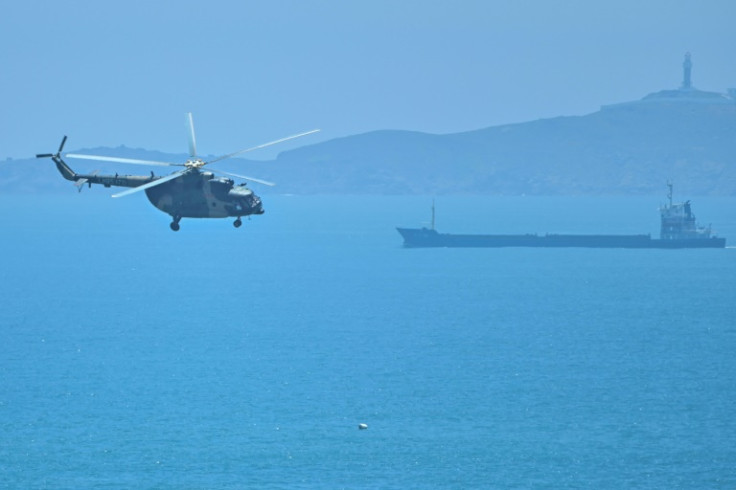Taiwan's Military Modernization Plans Hampered By US Arms Supplies For Ukraine War
KEY POINTS
- Taiwan and the U.S. have signed several arms deals for supply of advanced weapons systems
- The U.S. government blames a crowded production line for delays
- Faced with delays, Taiwan is seeking alternative options
- Countries willing to sell to the island democracy will have to contend with China's outrage
With tensions in the Taiwan Strait having reached their highest level in years, Taiwan is seeking to ramp up its military capabilities to stave off a possible attack from China. However, delays in arms supplies from the U.S., which is focused on Ukraine, are hampering Taiwan's plans.
Media reports say that the delivery of four MQ-9B "SeaGuardian" drones and ancillary systems worth US$549.56 mn, purchased by Taiwan from the U.S. is now expected to be completed only by the end of 2029, a year later than anticipated.
Taiwan and the U.S. have signed several arms deals to buy advanced weapons, including fighter jets, military drones and missiles. However, as the Ukraine war lingers on, and with the U.S. pushing for additional weapons to be delivered to Kyiv, the fear is that crucial military hardware from the U.S. will be dangerously delayed. Similar arms sales to Japan, South Korea, Australia and New Zealand have also been delayed.
In May, Taiwan's Ministry of Defense reported delays in receiving M109A6 Medium Self-Propelled Howitzer artillery systems from the U.S. The deal for the artillery system, which was valued at $750 million and was scheduled to be delivered by 2023, has now moved to 2026.
Similar uncertainties have marred the scheduled deliveries of 250 Stinger missiles, which was to be received in phased shipments by March 2026, and the delivery of 66 F-16 fighter jets, which the island country has purchased from the U.S.
As the U.S. government has blamed a crowded production line for these apparent delays, Taiwan is seeking alternative options to meet its military capability requirements, evaluating other precise and long-range weapons systems.
Although Taiwan has purchased arms from several western and few Asian countries in the last century, the U.S. remains the only country that continues to have arms deals with the island nation.
Weapon capabilities apart, countries willing to do business with Taiwan will also have to contend with the outrage and tough posturing from an increasingly assertive Beijing, a fact that makes it difficult for Taipei to easily identify and buy weapons from countries other than the U.S.
In May 2020, China warned France not to "harm Sino-French relations" by selling arms to Taiwan, as the island nation sought to upgrade its French-made warship fleet, bought 30 years ago. In 1991, France had sold Taiwan six Lafayette frigates, angering China. A year later, France also sold Taiwan 60 Mirage fighter jets. France rejected the Chinese criticism, saying it was merely fulfilling contractual obligations.
China claims Taiwan, a self-governing democracy, to be part of its territory and has long vowed to "reunify" the island with the Chinese mainland, by force if necessary. Tensions between Taiwan and mainland China have been high since a visit by House Speaker Nancy Pelosi to Taipei in August. China responded by ordering several days of military drills around the island's democracy.
Following its tensions with China, Taiwan has undertaken a major military modernization program to improve its capabilities to fend off a military attack from the mainland.

© Copyright IBTimes 2025. All rights reserved.






















